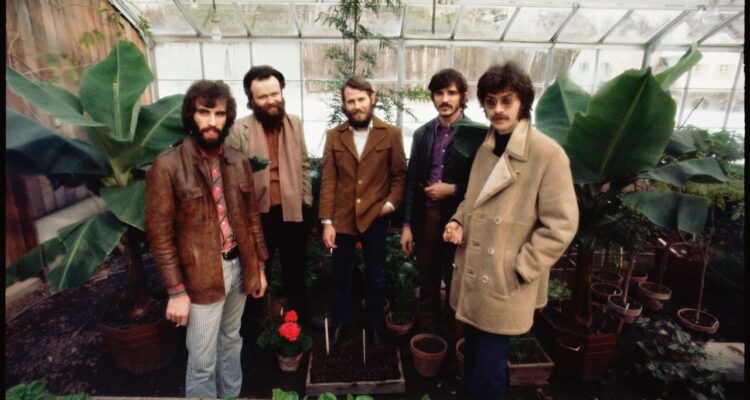Though many rock groups with successful first records experience a sophomore slump, the Band came roaring back from their outstanding Music from Big Pink debut in 1968 with a superb eponymous second album in 1969. Their third release, 1970’s Stage Fright, was pretty darn good, too.
Their fortunes finally took a turn with album number four, though the extent of the turn is subject to debate. It’s hard to argue that 1971’s Cahoots is not a step down from its predecessors, but those records set a high standard – and it’s probably that standard that caused many critics to pounce on the LP.
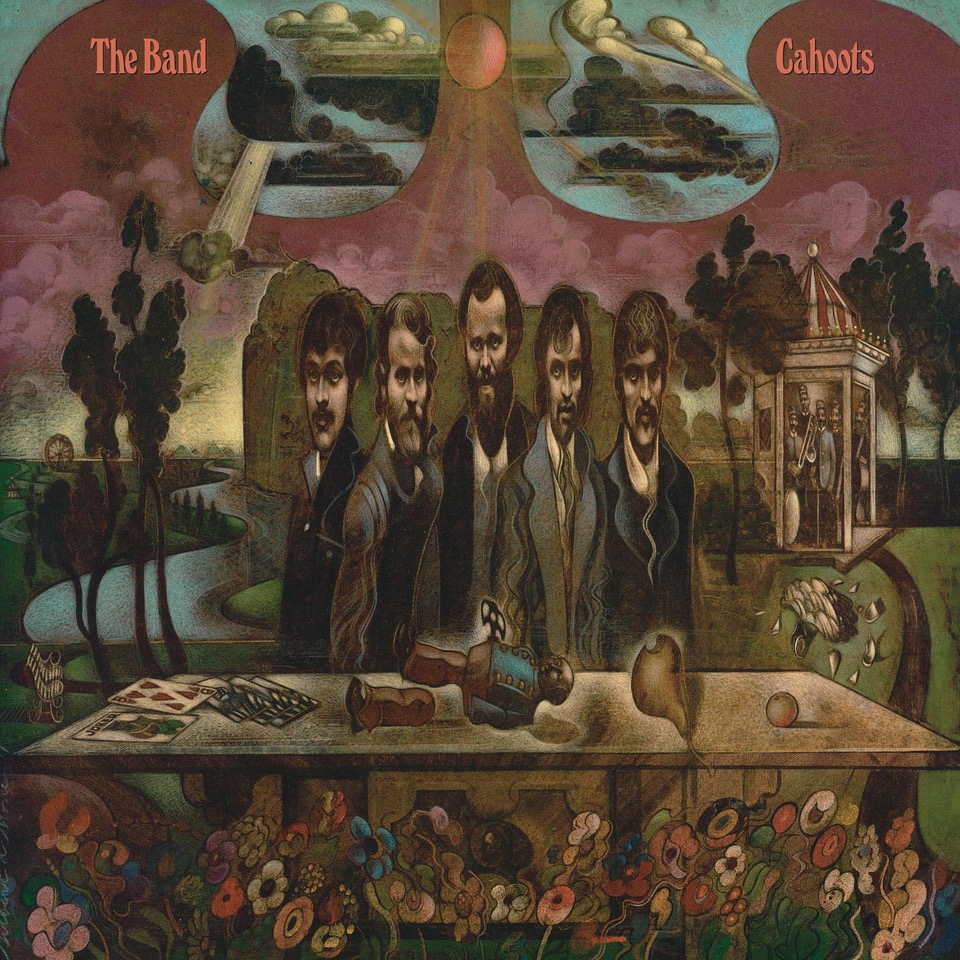
Every member of the group continues to perform beautifully on Cahoots, and it certainly has its moments, including the funky “Life Is a Carnival”; “When I Paint My Masterpiece,” a Bob Dylan composition that features atmospheric organ by Garth Hudson and makes its first appearance here; and “4% Pantomime,” a Robbie Robertson/Van Morrison co-write that finds the latter guesting to share lead vocals. Although, the rest of the material falls short by varying degrees: numbers like “Smoke Signal” and “Shoot Out in Chinatown” are enjoyable albeit insubstantial while songs such as “The Moon Struck One” and “Volcano” seem like mere filler, though Hudson’s potent sax work partly redeems the latter.
A new 50th-anniversary edition moves Cahoots into the “Buy” column, however. For one thing, it includes a CD with a new Bob Clearmountain mix that makes everything sound a bit better and a surround-sound audio Blu-ray that makes it all sound much better. Listening to these, you may conclude that the strength of the performances outweighs the relative weakness of some of the material.
Moreover, the anniversary edition adds other goodies, among them a seven-inch vinyl single; a 180-gram vinyl LP; and eight studio bonus tracks, including alternate takes of “When I Paint My Masterpiece” and “4% Pantomime” and a previously unreleased instrumental version of “Life Is a Carnival.” Other carrots include three frameable photo lithographs and a 20-page booklet with liner notes by Robertson and York University professor and musicologist Rob Bowman, who has long been associated with the group.
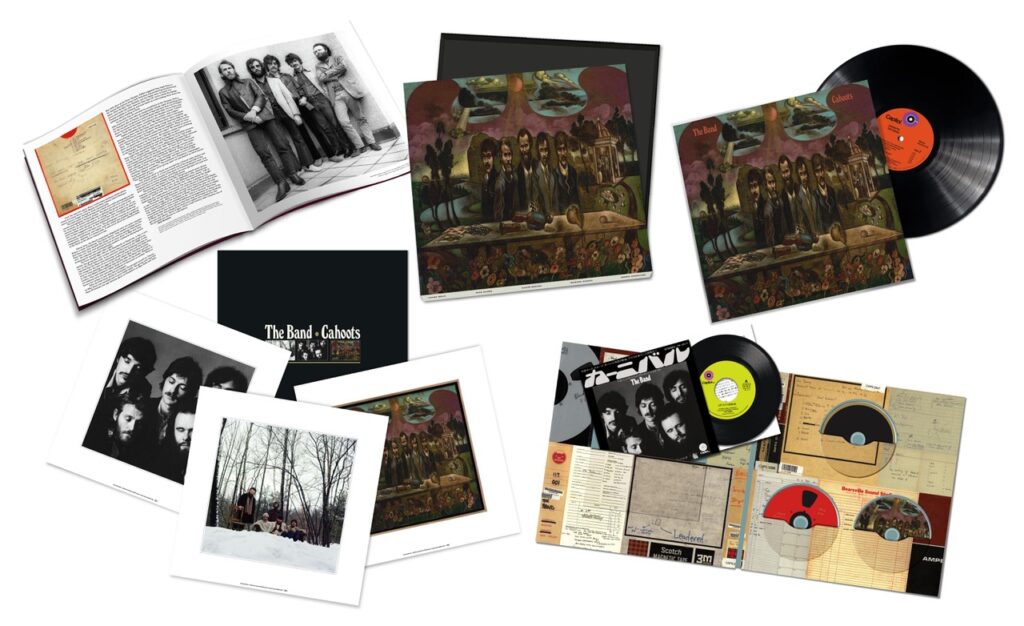
Most significantly, the set offers 50 minutes of previously unreleased material from a contemporaneous concert at the Olympia Theatre in Paris that hits many of the high points from the Band’s first three albums: “The W.S. Walcott Medicine Show,” “The Night They Drove Old Dixie Down,” “Across the Great Divide,” “Rag Mama Rag,” “The Unfaithful Servant,” “Chest Fever,” and five more numbers. The Band may have been in a bit of a composing slump by the time of this May 1971 concert; but as these performances demonstrate, they could certainly still serve up entertaining versions of their classics onstage.
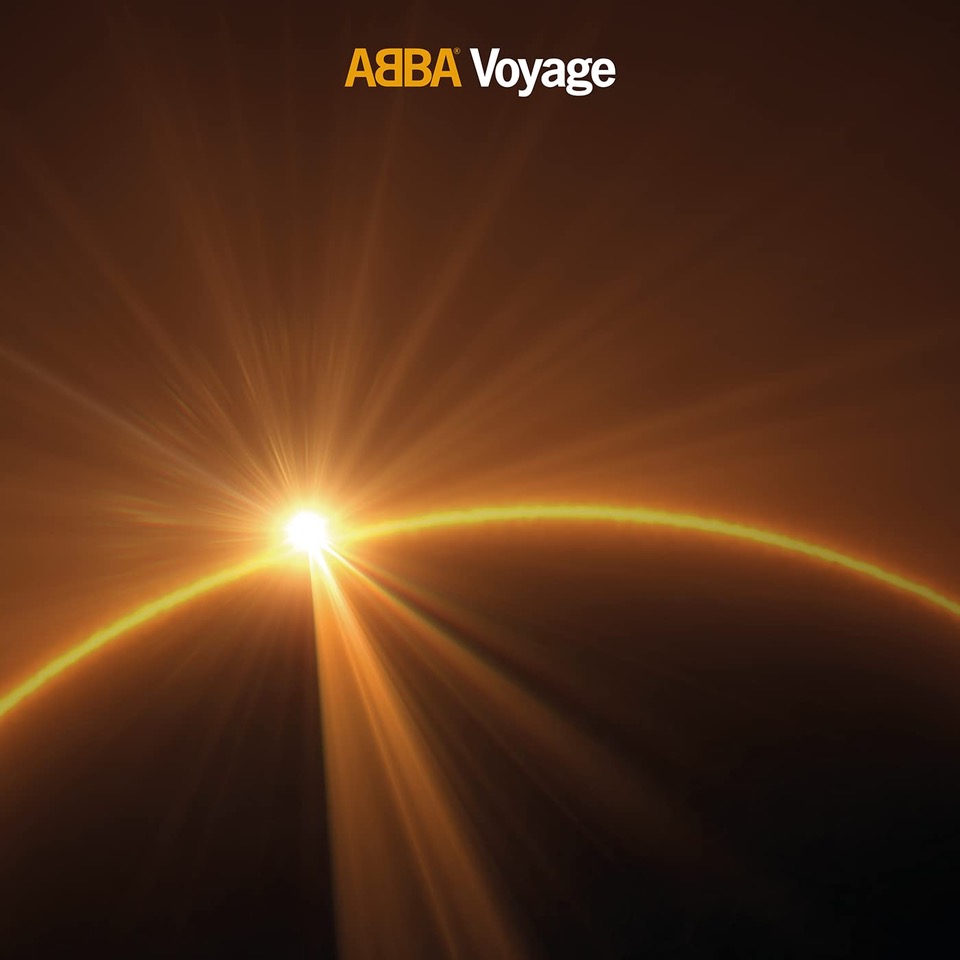
ABBA: It’s Like They Never Left
If you were in your thirties when the last album of new material from ABBA came out, you’re in your seventies today, as the quartet – who are themselves now all septuagenarians – release Voyage, its follow-up. Yup, it’s been 40 years between albums. The new record, however, sounds as if it could have been made at the same time as The Visitors, its 1981 predecessor – which is good or slightly bad news, depending on whether you were mostly hoping for more of that classic ABBA sound or evidence of artistic growth.
“I Still Have Faith in You,” the lead-off number, offers an early hint that we’re in for the former, and sure enough: the album boasts exhilarating melodies, effective use of synthesizers, a mix of ballads and rhythmic danceable numbers, layered vocals, irresistible hooks, and expert production… but nothing that wouldn’t fit right in on LPs the band was turning out four decades ago. As on the early LPs, the lyrics are mostly trite; and the proceedings get a little too syrupy at times, most notably on “Little Things,” a Christmas song that features a children’s choir, but if you liked ABBA in 1981, you’ll like them in 2021.
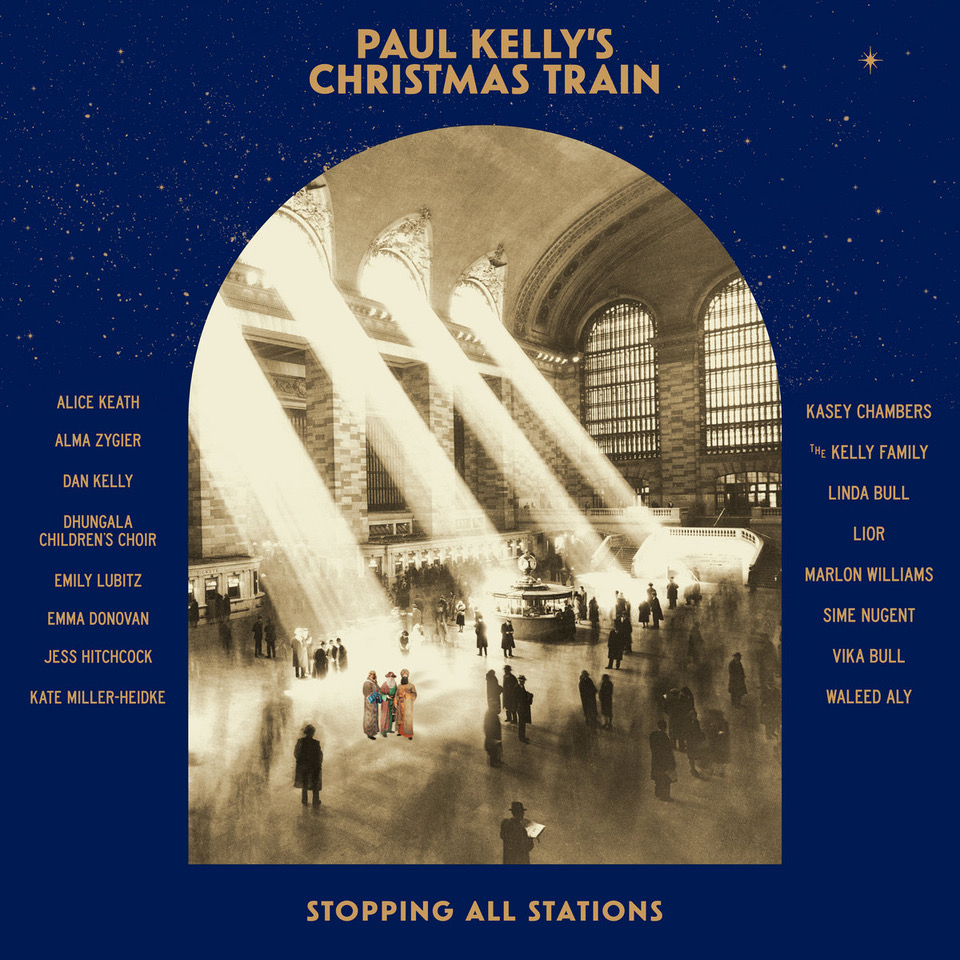
Jump Aboard Paul Kelly’s Christmas Train
The holiday will be over by the time you read this, but climb aboard Paul Kelly’s Christmas Train and you’ll be transported right back to December 25. The Australian singer, songwriter, and guitarist has always had eclectic tastes, and they’re on full display on this album, one of the year’s best seasonal releases.
The 75-minute, 22-track CD, which employs numerous guest accompanists, includes Gilberto Gil’s “In the Hot Sun of a Christmas Day” and Robbie Robertson’s “Christmas Must Be Tonight” as well as standards like “What Are You Doing New Year’s Eve?” (featuring jazz vocalist Alma Zygier), “Silent Night,” and “The Little Drummer Boy.” Also here are poems by Thomas Hardy and John Donne that Kelly set to music and a version of “Christmas (Baby, Please Come Home)” with a vocal by Australian singer Linda Bull that rivals the Phil Spector–produced Darlene Love original. Another highlight is the touching “How to Make Gravy,” one of Kelly’s better-known compositions, which finds an imprisoned protagonist singing to the family he misses at Christmas.
Jeff Burger’s website, byjeffburger.com, contains five decades’ worth of music reviews, interviews, and commentary. His books include Dylan on Dylan: Interviews and Encounters, Lennon on Lennon: Conversations with John Lennon, Leonard Cohen on Leonard Cohen: Interviews and Encounters, and Springsteen on Springsteen: Interviews, Speeches, and Encounters.


